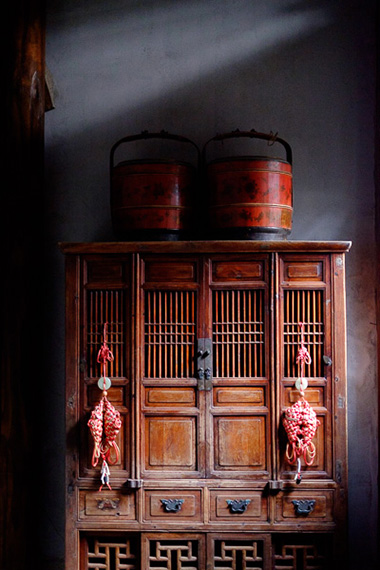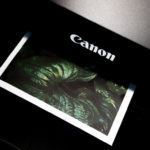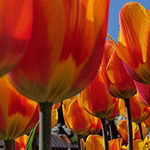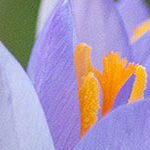Standard lenses (also called normal lenses) have a kind of mystique amongst photographers. Perhaps it’s because Henri Cartier-Bresson was famous for using one, maybe it has something to do with nostalgia for the times when most cameras came with a 50mm kit lens rather than the zooms that are common today. Regardless, if you are looking for a versatile prime lens for street or travel photography then a standard lens is an excellent choice. My 35mm prime (a standard lens on an APS-C camera) has become my favorite lens for street and travel photography.

f/1.4
Let’s start with some definitions.
A standard lens for a full-frame or 35mm film camera is a 50mm prime (one exception – Pentax makes a 43mm f/1.9 lens).
For an APS-C system a 35mm prime lens (such as the excellent 35mm f/1.4 lens made by Fujifilm) is a standard lens. Some photographers also consider a 28mm lens to be a standard.
For a Micro four-thirds camera you need a 25mm prime.
Last year I took a wide-angle lens, a standard lens and a short telephoto lens with me on a five week trip to China. I used them all for street photography, but when I analyzed the photos afterwards I realized that over 90% of them were taken with the standard lens (a 35mm f/1.4 prime). That trend continued during a later trip to Spain.
Here are some of the reasons that I used the standard lens so much more than the others, combined with some tips for making the most from them yourself.
1. Standard lenses have wide maximum apertures
Standard lenses typically have a maximum aperture somewhere between f/1.2 and f/2. This helps you take photos in low light, or use the wide aperture settings for selective focus, or both. This is really useful if you take photos in a street market or some other lively location at night, or inside a dimly lit building.
The photo above, taken in a historical building in Hangzhou, is a good example. The light was so low that I had to set the aperture to f/1.4 and ISO to 6400 to take the photo.
2. Standard lenses let you take photos in the street without getting too close to people
Standard lenses let you take candid photos of people in the street without getting too close. In China, I found that most people ignored me as I took photos with my 35mm lens. It may have helped that the Fuijfilm camera I used (an X-T1) is much smaller than a digital SLR and less intimidating. It may also have helped that the Chinese are such keen photographers that another person with a camera doesn’t draw much attention.
From a practical point of view, the standard lens lets you take photos of people without getting so close to them that you invade their personal space.
I spotted this man by the entrance of a restaurant in Hangzhou. His clothing and thoughtful pose caught my eye – I believe he was there to encourage people to come into the restaurant. It was only afterwards that I realized there was an interesting juxtaposition between him and the statue to his left.
You can take environmental portraits like this very easily with a standard lens.

Street Photography
3. You can use a standard lens to simplify the background
Street scenes are naturally chaotic, and it’s the photographer’s job to make some kind of visual order from this. The narrower field of view of standard lenses (compared to wide-angle lenses) means that you naturally include less background in your images. You can also throw the background at least slightly out of focus by selecting an aperture of f2.8 or wider. This is much harder to do with wide-angle lenses.
An image like this, taken in a street market in Xi’an, has a much tighter background than you would be able to get with a wide-angle lens. That helped me exclude other people from the scene and focus attention on the woman.

Simplify the Background
4. You can use a standard lens to capture details
Standard lenses are good for capturing details. Street photography is not just about making portraits. You can build up a feeling for a place by photographing details that capture its character and spirit.
Most standard lenses can focus quite closely to the subject, making them a very versatile lens for travel photography.
This photo of fish taken in a market in Cadiz, Spain is a good example.

Details
5. Use a standard lens to make a portrait of somebody with permission.
Standard lenses are ideal for portraits. They work well if you stop people in the street and ask if you can take their photo. While you could argue that a longer focal length will help you take portraits with a more flattering perspective, the advantage of a standard lens is that it is smaller and less intimidating to the person that you have approached. You are much more likely to get a natural response.
Earlier this year I went to Carnival in Cadiz. There were lots of people in costume, but only a few with face paint. When I saw somebody with interesting face paint I asked if I could take a photo. Every time I asked, the person said yes, and I took a couple of photos.
Here is one of them.

Portraits with Permission
6. You can capture scenes including people for scale or context
Standard lenses are good for capturing scenes which include people to give scale or context. The angle of view is wide enough that the people in your photo, if you are far away, are not bothered about being in it. They will probably think you are taking a photo of the scene behind them, especially if it is picturesque and worthy of a snapshot. If the person is positioned on a third, or at the edge of the frame, then the camera won’t be pointing directly at them. Even if they notice you they don’t feel threatened by it.

People for Scale or Context
This photo, taken in Beijing, shows a local woman amongst some of the beautiful architecture by Beihei Lake.
About the Author:
Andrew S Gibson is a professional photographer based in New Zealand. He has taken photographs in 60 countries now as a Technical Editor for EOS magazine. He produced a Mastering Lenses guide for photographers.
Like This Article?
Don't Miss The Next One!
Join over 100,000 photographers of all experience levels who receive our free photography tips and articles to stay current:






I use Nikon DX (APS-C) cameras and lenses. One of my lenses is the wonderful, slightly above normal DX AF-S 40mm f2.8G. It is great for street photography (equivalent to 60 mm full-frame), is super sharp, and also does
true micro-photography down to 1 to 1. Plus, it is quite inexpensive. By your standards, it is slightly slow (f2.8) but I think that is not much problem with the noise-free higher ISO settings now prevalent.